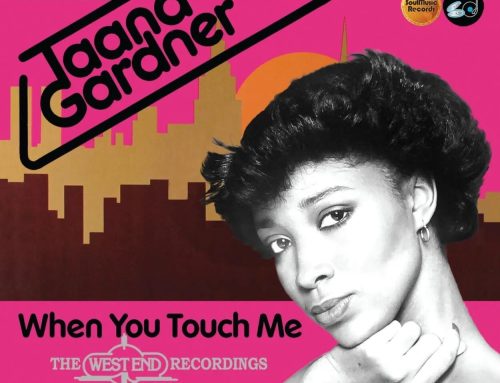There was a plethora of Black Music Month events in June, but SoulMusic.com was thrilled to be present at the National Museum of African American Music in Nashville for the 2022 State of Black Music Summit, an event jam-packed with invigorating and thought-provoking conversations with music makers, industry executives, historians and curators all offering their unique perspectives on the rich past, present and future of Black music.
The summit kicked off with an introduction by NMAAM President and CEO, H. Beecher Hicks III, followed by the first panel. Connecting America to its Soundtrack was moderated by Tamar Smithers, the museum’s Senior Director of Education and Exhibit. Panelists included Leila Hamdan, Collections Manager and Archivist at the Stax Museum, Levon Williams from the American Alliance of Museums and Reggie Peters, Board Trustee at the Universal Hip Hop Museum. The panelists each offered their perspectives on the reasons that museums specifically devoted to Black music are so vitally important. Williams explained, “There is no aspect of Black life that doesn’t in some way include music, it is so ingrained in how we live our lives—so a place that amplifies and shares that and gives a place for a community to gather and celebrate that, I think those things are really important.”
“The story of Black history in America has been told, only until recently, by non-Black people and the music is the most democratic medium that’s in our lives at all times,” Hamdan elaborated. “One of the things that fascinates me is these ideas of masculinity and the ability to express real heartfelt feelings, but you hear it in the music and it tells the story of their lives through their perspectives. When you read about African American history in scholarship, it’s negative. It’s not on a positive note. The music shows the celebration, the community and all the dynamic aspects that are often difficult to write down.”
Reggie Peters continued, “The African American story has been diluted and suppressed and a lot of us don’t even know enough about ourselves or what happened or where we came from in the first place. Museums give life to things that happened in the past and shed light on what’s happening in the future. I believe that younger musicians, executives, and entrepreneurs that are interested in pursuing careers in music or the business need to visit all of these museums around the country so they can get a full picture of the Black experience in terms of the art itself.”
 The panelists each emphasized the importance of the museum as a tactile, interactive environment that is relevant and engaging to a younger generation. Levon Williams jokingly recalled visiting the Stax Museum where Leila Hamdan overheard two museum visitors talking as they looked at a Johnnie Taylor exhibit. When Hamdan heard the visitors discussing how handsome Taylor was, she asked them if they’d like to know what he smelled like. She brought out a bottle of his cologne that was a part of the Johnnie Taylor collection so they could have an aromatic experience to fully engage their senses.
The panelists each emphasized the importance of the museum as a tactile, interactive environment that is relevant and engaging to a younger generation. Levon Williams jokingly recalled visiting the Stax Museum where Leila Hamdan overheard two museum visitors talking as they looked at a Johnnie Taylor exhibit. When Hamdan heard the visitors discussing how handsome Taylor was, she asked them if they’d like to know what he smelled like. She brought out a bottle of his cologne that was a part of the Johnnie Taylor collection so they could have an aromatic experience to fully engage their senses.
Another highlight of the conversation-packed day was the ARTistry panel, moderated by the Mother and co-founder of Black Music Month, Dyana Williams and Phil Thornton, Senior VP of Capital Christian Music Group. The panel consisted of Louis York (Claude Kelly and Chuck Harmony), The Shindellas (Tamara Chauniece, Kasi Jones and Stacy Johnson), Nashville-based composer Frankie Staton and Tim Reid, Senior VP of Repertoire and Marketing at BMG.
Williams masterfully engaged this diverse panel in a conversation about defining artistry, finding one’s voice and the preparation required to take one’s art to the masses. Claude Kelly, who along with Chuck Harmony, helped create The Shindellas discussed why they thought an all-female group was important to form. “We understood that not having groups, especially [composed] of Black women, singing was doing a disservice to society. You need to hear people harmonizing so you can be inspired to get with other people and harmonize, whether that’s musically or in other work-ways. There has been a drought in organic, high bar musicians who sing together—I would say since Destiny’s Child. We felt like it was our responsibility to bring back what we think is an important part of culture. They are the manifestation of that idea. It was a spiritual mission.”
The Shindellas themselves discussed the importance of a holistic approach to artist development that encompasses not just what occurs on the stage, but in the heart. Stacy Johnson from the group explained, “I am a big believer in visioning and that is a huge part of artistry—believing you can make it happen. Two years of visioning and praying brought The Shindellas together.” Kasi Jones added, “Artistry is about getting out of your own way—all of that work. That was a big thing for us, we had to get out of our own way so that we could be truly vulnerable with each other. Everything we do is so intentional and our projects are so story-driven, so it helps to stay focused. I think you hear that in our harmony. There’s this emotional resonance and I hear all of our stories in that resonance. It’s important.”
On the other end of the spectrum, Frankie Staton, who moved to Nashville in 1981 to pursue a career in music, talked about her own unique placement in Nashville as a Black woman writing country music and the challenges she faced and continues to face. Staton recalled presenting her music to industry gatekeepers. “When I could get a publishing appointment, they would say, ‘Well, I don’t even believe you wrote that. You couldn’t write a song of that caliber.’ I didn’t understand the marginalization of women, let alone the marginalization of women from different origins.” But Staton has persisted. “When you have a God-given gift, you can’t just lay it down. I just continued to write all kinds of music. I went to the Apollo in New York and made it, singing my own music. I kept knocking on doors in Nashville, but no one would sign me to write. I’ve been trying to be heard. Every artist wants to be heard and that’s where it begins.” Now in her mid-sixties, Staton has been getting the much-deserved attention that she is due. She’s been featured at the Black Opry, in the documentary For Love & Country, and is currently at work on her first EP.
The Black Music Summit is an essential event for creatives and music lovers alike, certain to provoke thoughts, generate ideas and facilitate important conversations about how and why music is made and the ways it is handled in the marketplace. To stay updated on events and exhibits at the National Museum of African American Music and the 2023 Black Music Summit, visit https://www.nmaam.org/.
The State of Black Music Summit is complemented by the State of Black Music podcast, co-hosted by Phil Thornton and Louis York, which further explores the dialogues explored on the main stage of the Summit. The podcast is available for streaming via your preferred digital outlet.
Tim Dillinger, Editorial Content Manager






